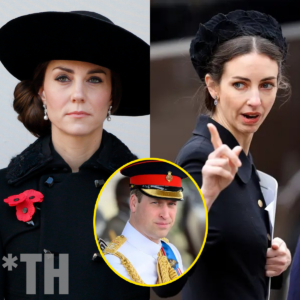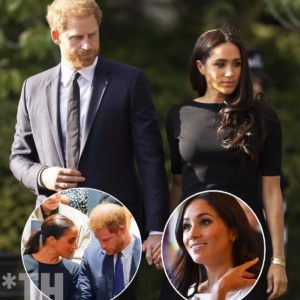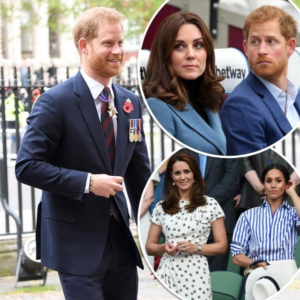Prince Harry had to apologise after breaking the confidentiality ring in his High Court battle over his security arrangements in the UK after emailing information to Veterans Minister and MP Johnny Mercer
Prince Harry had to apologise after breaking confidentiality rules in his High Court battle over his UK security arrangements, it has emerged.
Court documents have shown that the Duke of Sussex “breached a confidentiality ring” when he emailed information to the veterans minister and MP Johnny Mercer, as well as a partner at law Schillings, who was not in the “confidentiality ring”.The information breach was revealed in a costs ruling handed down to Harry after he lost his High Court challenge over a decision to change the level of his personal security when he visits the UK. Yesterday it was also revealed he had lost his initial bid to appeal against the decision. However, the duke is still able to ask the Court of Appeal directly for the green light to bring an appeal.
Harry and wife Meghan with Johnny Mercer at the Invictus Games in Dusseldorf last year (
Image:
Getty Images for the Invictus Ga)
In the costs ruling, it said that the Duke has been ordered to pay 90 per cent of the Home Office’s legal costs of defending his challenge. And in the judgement, retired High Court judge Sir Peter Lane wrote: “In November 2023, the claimant breached the terms of the confidentiality ring order by emailing certain information to a partner of Schillings, who was not within the confidentiality ring, and to the Rt Hon Johnny Mercer MP.
“Fortunately, the breach was almost immediately detected by Ms Fatima KC, who acted promptly to inform Ms Afia of Schillings. She in turn informed the defendant (via the Government Legal Department) as well as taking action to minimise the effects of the breach.
“The defendant nevertheless says that these breaches (for which the claimant has apologised) caused the defendant to incur unnecessary costs, as can be seen from the correspondence which ensued.” The judge added: “Whilst I do not wish to be taken as minimising the seriousness of the breach, I do not consider that it bears upon the determination of the costs issue.”
Promoted Stories
It is believed Harry and Mr Mercer share a close bond with the MP, a vocal supporter of the prince’s Invictus Games for sick and wounded servicemen and women. He is also heading the government bid to bring the games to Birmingham in 2027.
Elsewhere in the order published on Monday, Sir Peter said that Harry should pay most of the Home Office’s legal costs, but said the government department had committed ‘breaches’ during the legal battle which were ‘sanctionable’.
The retired judge said the costs to be paid should be reduced by 10 per cent, rejecting an argument from Harry’s lawyers that it should be reduced by at least 50 per cent. Sir Peter said: “There is no merit in this ‘partial success’ submission … The fact that the court did not accept each and every submission of the defendant as to the path to take towards dismissal of the claim does not alter the fact that the claimant comprehensively lost.”
Harry took legal action over the February 2020 decision by the Executive Committee for the Protection of Royalty and Public Figures (Ravec) after it ruled he would no longer be given the “same degree” of publicly-funded protection when in the country. Ravec’s decision came as a result of a change in the Duke’s ‘status’ after he stopped being a “full-time working member of the royal family “, a judge was told.
In February, retired High Court judge Sir Peter Lane rejected the Duke’s case that he was “singled out” and treated “less favourably” by the decision and concluded Ravec’s approach was not irrational nor procedurally unfair. After the ruling, a legal spokesperson for Harry said in a statement that the Duke “hopes to obtain justice from the Court of Appeal”.
Harry’s lawyers had previously told the court that he was “singled out” and treated “less favourably” in the decision to change the level of his taxpayer-funded personal security. They said a failure to carry out a risk analysis and fully consider the impact of a “successful attack” on him meant the approach to his protection was “unlawful and unfair”.
The court was told that Harry believes his children, Prince Archie and Princess Lilibet cannot “feel at home” in the UK if it is “not possible to keep them safe” there. At a previous hearing in the case in a written statement, Harry said: “It was with great sadness for both of us that my wife and I felt forced to step back from this role and leave the country in 2020. The UK is my home.
“The UK is central to the heritage of my children and a place I want them to feel at home, as much as where they live at the moment in the United States. That cannot happen if it’s not possible to keep them safe when they are on UK soil. I cannot put my wife in danger like that and, given my experiences in life, I am reluctant to unnecessarily put myself in harm’s way too.”
News
Thomas Markle ‘so sad’ he won’t join Prince Harry and Meghan Markle for special occasion
Thomas Markle has been estranged from his youngest daughter Meghan Markle since shortly after her wedding to Prince Harry in 2018. Thomas Markle has never met neither…
Rose Hanbury breaks silence to answer allegations over Prince William affair
There have been an untold number of well-publicized royal scandals over the years, many points in history where the ongoings of the British monarchy have dominated newspaper…
Netflix CEO Snubs Sussexes’ $100 Million Deal: Meghan Markle Faces Rejection from Streaming Giants
SO, BACK IN 2020, MEGXIT HAPPENED. HARRY AND MEGHAN DECIDED TO STEP BACK FROM ROYAL DUTIES, CITING PRIVACY CONCERNS AND A DESIRE FOR INDEPEN… So, back in…
Man Claiming to Be King Charles & Queen Camilla’s Son Speaks Out on DNA Test — Details & His Photos
An Australian’s quest for royal recognition takes a dramatic turn, with a plan to compare DNA with a royal family member at the center. Amidst a backdrop…
Prince Harry and Meghan Markle reportedly face their titles being STRIPPED with the Royal Family’s silent approval
The Palace has be warned that a potential move could spark backlash from the public if it’s given the go ahead. A royal expert has claimed that…
Meghan Markle thinks Prince Harry is making ‘big mistake’ by reaching out to Princess Kate
Meghan Markle is reportedly worried about Prince Harry attempting to reunite with his sister-in-law, Princess Kate, following the news of her cancer diagnosis, as he prepares for…
End of content
No more pages to load





